|
By Jen Jones, See the Triumph Guest Blogger Note: While intimate partner violence can happen in various circumstances (e.g., female perpetrators, same-sex relationships, etc.), this blog post will focus on male-perpetrated violence against women. Recently, I came across Tony Porter’s TED talk on the socialization of men. You can watch it here. This 11-minute video blew me away. Tony describes the messages that we give to our boys…messages like, “Be a man! (and, being a man is defined by having power and control, especially over women)” and “Women have less value and are sexual objects to be conquered or property to own.” These messages are not new to us; they’ve been taught by our culture for generations. But, these messages breed attitudes in men that perpetuate and justify violence against women. Additionally, our culture may not be the only place that boys receive these messages. Existing research indicates that children who grow up in violent homes are at greater risk to experience violence in their adult relationships (Murray & Graves, 2013). Witnessing domestic violence at home can lead kids to believe that abuse is normal or that controlling someone is a good way to show them “love”. Our sons may have learned these messages from our very own homes. So, what can we do about it? How do we rewrite a script that has been engrained in our culture for generations? What will instill respect for women in our young boys? To begin, staying silent about the issue will never result in positive change. Just TALKING about what healthy versus unhealthy relationships look like and challenging the societal messages is a good start. Does the idea of talking to your teenage son about relationships and all the accompanying potentially awkward topics make you start to sweat? Feeling a little uncomfortable? If so, consider the following five tips to help get you started: 1. Embrace the awkwardness. As humans, we tend to avoid all things that make us feel uncomfortable. Accept that tough conversations might be awkward at first, but the consequence of our silence is far worse. Our silence leaves boys learning about relationships from media, a violent society, and enlarged egos in teenage boy’s locker rooms. Instead, let’s lean into the awkwardness and with a morsel of bravery and lots of humility. Let’s start conversations about love, respect, and dating relationships with our sons. It may help ease the awkwardness by having these conversations while taking a walk, eating a meal, or riding in the car. 2. Ask open-ended questions. Open-ended questions encourage discussion and elicit more than a simple “yes” or “no” response. For example, you can ask, “What do you think a healthy relationship looks like?” Or, “how do you show a girl you like her?” You can use examples from movies and television shows you watch together to spark discussion about the words, actions, and attitudes that men use to control women. Be genuinely interested in what they have to say about their own experiences with relationships. 3. Then, LISTEN. I know you have a lot you want to say about healthy relationships, but with teenage boys, you have to earn the right to be heard and often that is earned through listening first. Resist the urge to interrupt, analyze, or criticize what they say. Instead, ask follow-up questions which shows you were really listening. 4. Enlist some help. Older men often have a profound impact on younger men’s lives, so make sure your son has some great male role models who show respect for their partners and foster healthy relationships. 5. Keep it up! This is not a one-and-done conversation. Make it an ongoing discussion. Keep your eye out for real life examples that create opportunities for you to talk about dignity and respect for all people. Has this blog sparked your interest? Here are some additional resources that might help you in continuing this conversation in your family: www.LoveIsRespect.org www.acalltomen.org References:
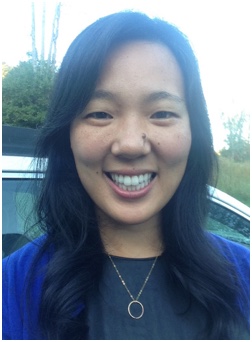 Jen Jones is a Masters student studying Couple and Family Counseling at the University of North Carolina at Greensboro. She has six years of experience working with kids and teens at a Christian summer camp, and looks forward to working with families in the future. By Elissa P. Pope, See the Triumph Guest Blogger Enough is enough. Acquaintance rape and sexual assault on college campuses seem to be out of control. And though recently universities are facing the fire for their lackluster response to the epidemic, the fact is that many campuses simply are not prepared to be the hand of the law when it comes to sexual violence on their campuses. Something needs to change, because according the U.S. Department of Justice, rape is the most common violent crime on American college campuses today. In fact, statistics say that 1 in 4 college women will be the victim of sexual assault during her college career. Those statistics should be sobering to parents – of both boys and girls alike. We are living in a culture of rape, and we’re sending our children into the thick of that culture when they leave home for college. But even as we begin to acknowledge that reality, we also can’t just sit back and hope that someone else will take care of it for us. No, we as parents are responsible for teaching our children about this reality, and for instilling in them the values necessary to help them survive it. For many years, the focus has been on parents teaching their daughters how to protect themselves from sexual violence perpetrated by males. But teaching our girls to play defense simply isn’t enough. The fact remains that statistics say that many will still fall victim, and that alcohol is usually involved. Victims of sexual assault are then left to navigate the treacherous waters of victim blaming and shame. Teaching how not to get raped is only part of the battle. We need to teach all of our young people how to respect others’ bodies and how to treat other people with nothing but the utmost respect for others’ rights to make their own decisions about their bodies and their sexuality. To help our children prepare for rape culture on college campuses, let’s be a different voice for our young people to hear throughout their childhood and adolescence. Let’s make sure that they leave home with these words in their hearts: 1. Respect your body – and everyone else’s too. When our babies are new, we revel in the miracle that is the human body, spending hours staring at their beautiful fingers, tiny toes, button noses, and perfect ears. As they grow into toddlers, we strive to help them adopt that same reverence for the human body, as they discover all that is new and wonderful about themselves. We want them to love themselves as much as we love them and to extend that love and respect to others. But those lessons continue throughout their lives. The voice that tells them to love and respect all human bodies should be ever-present. Because with every passing year, their world is getting bigger and broader, and they will meet situations where that respect for another is hard to come by. And they will experience someone who isn’t respecting them. In those instances, we want their heart to be screaming that this isn’t right. 2. Your body should not be the cause of pain for another. A child’s relationship with their parents sets the stage for all future relationships. In even the most loving households, violence creeps in, often through innocent play. In our house, parents and children roughhouse with one another. I think it’s a great teaching opportunity for our children, so that roughhousing comes with a set of rules. One of which is that it is NEVER okay to slap, punch, or pinch one another, even when we’re playing. Even if anger isn’t the source. Our bodies are NEVER to be used for hurting another. Never. 3. When it comes to your body, you’re in charge. As I mentioned above, my children and I like to engage in physical play, which, according to some experts is incredibly beneficial for their development. It usually involves a lot of laughter and joy, and is a great way to bond with one another. But when we’re roughhousing or tickling, and someone says stop, even if they’re giggling through their words, we stop. Always. This is a hard one for almost everyone, because it sometimes means that the person who’s having tons of fun has to put a halt to it. And sometimes it means that the person who said, “Stop” didn’t really mean it and they want to keep playing. We’ve had countless conversations about why we have this rule, and what it means. My hope is that our children are truly internalizing the idea that all people get to be in charge when it comes to their body. 4. You don’t deserve to get everything you want. Everyone hears no at some point in their lives. With any luck, a child’s parents deny them something that they want on a regular basis, because that’s a reality of life at any age. We don’t always get what we want. People tell us no all the time. The lesson goes deeper than that, though. We can’t just tell a child no and dust off our hands before giving ourselves a hearty pat on the back for a job well done. We need to go further and actually teach our children how to respond afterward. Should they throw a temper tantrum? Hit because they’re angry? Try to take it anyway? Argue and persist until they change someone’s mind? That last one works on parents time and time again. We end up raising children who don’t know how to handle denial, or worse yet, who don’t believe that no is the final answer. The bottom line is that no means no. Parents can reinforce this message by setting—and sticking to—limits with their children. 5. Sex has value. I think most of America’s teenagers already come of age knowing this to be true. Value is ascribed to sex in almost every facet of our culture. Sadly, one of the loudest voices spoken to our children says that a primary value of sex is in making young people into men and women. Teens can internalize the message that having sex should be their primary objective if they want not to be seen as a child. And what teenager wants to be seen as a child? That’s an influential message, and it comes at them from countless directions. How then can we, as parents, minimize something with so much power? It’s unlikely that we can be a louder voice than the others. What we can be though, is an earlier voice. Talking about sex with our children is uncomfortable. For many of us, it makes our stomachs churn just thinking about it. So we put it off…we are great at procrastinating! But while we’re busy doing all that procrastinating, the other voices aren’t shy, and they chime in full-force. Before we know it, we’ve missed our opportunity, at which point many of us sigh and say, “Oh well.” Nope. We need to suck it up and talk to our children about sex before the other voices take top billing. Be there first to plant the seed so that your voice has a chance to take root before the onslaught ensues. We’ve got a hard job, us parents. And the world around us isn’t doing a thing to make it easier for us. The ever-growing presence of screens is opening the whole world up to our children, and in many ways, that’s amazingly wonderful. But at the same time, it’s quieting our voices in our child’s world, and we can’t afford to simply let that happen. Sexually violent images, words, and ideas are frantically swirling around our children and they are getting swept up in the tornado. As parents, we can be their anchor in the storm and help them navigate the challenges they face as they confront rape culture in college.  Elissa Pope graduated from Florida State University with a degree in Elementary Education. After spending several years working in public schools, she is now a graduate student at UNC-Greensboro, pursuing an MS in Couple and Family Counseling. She is passionate about the value of healthy family relationships and the ways in which the counseling profession can be a part of the healing process for those affected by domestic violence and sexual assault. 8/30/2014 "Oh Yes, It Is A Journey"Note: The following piece was written by one of the anonymous participants in our most recent research study. We’ve changed a few of the details that we thought might give clues to her identity, but otherwise, the words are hers, and we are so grateful that she shared her story with us. Her story reflects so many of the themes we’ve heard from many others who have shared their stories with us through our research, too. We were so moved by what she wrote, and we hope her words will offer inspiration, encouragement, and hope to others as well. Please note: Some of the details in this story are graphic, so please use discretion in deciding whether to read further.
************************************ “Oh yes, it is a journey. It is a journey where you discover that you have been charmed, he rewards you for doing it his way, he takes over more and more until you literally lose yourself. You live in a cycle of fear, anticipation, and violence if you disobey. Others are brought into the picture to support the abuse rather than the love that is supposed to be present. You learn to keep quiet and obey. You slowly decline while he increases and at the same time finds new ways to destroy you. You will look like a crazy woman, a mental patient, all worn out, a shell of a person. People will believe him, not you, simply because of how you look. He will take everything that means anything to you. One day, he will consider you so used up that you become secondary to whoever he has chosen as a new victim(s). He will want a harem of victims. “Look at you, why don't you go fix yourself up, I don't even know if I like you anymore, I have someone new, I want to leave, but I am taking your children with me, I am trading you in on two twenty-somethings, why won't you take the rap on bad deals like her, here's a list of what I want, do I have to retrain you to do what you are told?” Eventually the abuse becomes bolder and bolder and very obvious, but he is a charming prince and people describe him as a faithful husband in public. You see him choke your son, choke your dog, lie about you to others. You see no food, no water, no heat, you are left to freeze in a blizzard with no way out with no oil for the furnace. You have no phone, no gas for the car. He controls the money. Sometimes, he does not even come home for days. You find drugs, guns, strange bills, strange calls. He even goes on vacation out of state without telling you he is leaving. Every morning that he is home, you get raped and forced to watch porn and act out. You know that this is not an act of love. You worry about STDs. Sometimes he spits on you during sex or ejaculates into your face and eyes. You think no one will care, no one will believe you, that there is no place to go. If you complain about no heat, he holds a gun on you and the kids. It is down to the bare bones of who and what you are, having kids, and you know you would be better off on the streets. He comes home and injures you to the point where you think I can't run away and he will hurt the kids. The cops come, the people come to talk to me. I make the DECISION to leave it all. Three months of seeing other women, some addicted, some abusive, some abusive counselors and professionals, some who have lost it mentally. I struggle to be up at 5 AM to get kids to school, to get to appointments to get food benefits, housing, medical. I've never been in the system before. I have to seek a job. Legal matters, court dates, attorneys, counselors, journaling, children's counseling. My head swims. He is out there when I leave everyday threatening from afar. Each day I fear the bullet waiting for me. I get a job, I get a car, I get housing, my kids have issues. We treat and sooth the problems. I rediscover myself - I cry because I don't know what I like. I realize how bad I look and fix that. I give hope to my children. I win the client of the year at the domestic violence agency for outstanding accomplishments. I cry some more. I go to school and work. I get a [work credential]!! It's my passion. I am looking for a job in my field. I help others along the way to give them hope and direction to get out of their abuse. I have part of my credit rating back, I bought a better car. I have my little garden to play in. My kids are thriving. I have a 5 year [protective order]. He violated it along the way, but I kept fighting and say thank goodness for court advocates to hold my hand and help me breathe when I have to see him in court dates. He tries to get visitation...He is in violation of [the protective order], has other charges, and tried to talk to my children. I go to the police, I go to the prosecutor. I think here I am, it's [been years] and he is still at it! He will not see my children, he will not corrupt them. I go back to [the agency], where they welcome me with open arms to talk for hours. I come armed with evidence - court dockets on him to the ceiling. We get an attorney, I sign papers to let them represent me to the court. This time he will not succeed in domestic violence. I am free, I know what I like, what I believe in, I recognize abuse when I see it. I see it plenty too in the real world, not just from him. It is an ugly thing that is out there that everyone needs to be educated about. I am still fighting. But today, I know that I like the scent of [flowers], I like coffee with cream, I like to have my bills paid, I love my children, I like to read, I love [my work] and I can help others, I don't have to have sex with anyone, I do not like porn, I know that I am not stupid or ugly, I can walk with my head up high. I am a survivor not a victim.” ~ Written by an anonymous research participant, See the Triumph 7/27/2014 Their Little Eyes Are Watching By Heather Teater, See the Triumph Guest Blogger Children do not have to be the direct victims of abuse to be affected by domestic violence. Witnessing intimate partner violence can have a range of effects on a child or adolescent’s emotional and behavioral health. For example, children who have witnessed domestic violence have been found to have higher rates of PTSD, depression, and aggression than their peers. Witnessing intimate partner abuse has also been linked to decreased school functioning, increased risky behavior, and higher rates of future substance abuse (Wood & Sommers, 2011). With this knowledge, some might ask parents who are in abusive relationships why they don’t “just leave” their partners to save their children. However, it is not that easy and leaving is not always an immediate option. There are many circumstances that prevent men and women from getting out of abusive relationships. Perhaps most importantly, leaving can be dangerous and planning for safety is not an easy process. People who are in violent relationships are also often cut off from the support of friends and family. Violent partners may be in control of financial resources, leaving victims with only two options: stay with the perpetrator or leave with no money to survive. The victim may be dependent on an abusive partner in other ways as well, such as for medical insurance, access to transportation, or support for a disability. Having children may also make leaving more difficult. The victim has to find room for him- or herself and the children to stay, has to find the financial means to support multiple people, and has to plan for the safety of the whole family. Leaving is not a task that can be taken lightly and nobody should ever suggest that a victim of intimate partner violence should “just leave.” If you are unable to leave the violent situation at this time but have children who are witnessing the intimate partner abuse that is occurring in your household, there are steps you can take to help prevent them from suffering with long-standing effects. First and foremost, you should sit down with your children and a professional, if possible, to construct a safety plan for when violence is occurring in the presence of your children. Do you have a neighbor who would be willing to look after your children until the violent episode is over? If not, is there a safe place in or around your house to where your children can run when you and your partner begin to argue? Do your children know how to dial 911? Do they know your address? These are a few examples of what might be included in a safety plan. It is recommended that you create a personalized safety plan with a professional, but if you are unable to meet with a professional at this time, you can find a template for a safety plan here: http://www.ncdsv.org/images/DV_Safety_Plan.pdf . Be sure to keep this safety plan in a place where it is unlikely to be found by your partner. Your children may also benefit from receiving counseling. If you do not have your own insurance or are unable to afford counseling, look for a non-profit agency in your area where you can receive services at a free or discounted rate. Counseling can help your children develop new skills to cope with the violence occurring at home, with an ultimate goal of preventing any long-term effects. Just as it is important for you to build up your support system, it will also be helpful for your children to develop a support network of healthy friendships. More importantly, your children need to know that you love and care for them. Spending time with your children will help them know that while you are hurting, they are not at fault. Please note that if you decide to leave your violent relationship, most domestic violence shelters do provide shelter for children along with their parents. There are supports out there for you and your family. You and your children to not have to be victims anymore. You can find more information at the resources below. Resources
Reference
 Heather Teater recently completed her Master's degree in Couple and Family Counseling in the Department of Counseling and Educational Development at the University of North Carolina at Greensboro. By Christine Murray, See the Triumph Co-Founder
All this month, we’ve focused on parenting toward nonviolence. We couldn’t let this month end without addressing an important topic about children and violence. Today we’re focusing on how children are impacted when they experience domestic violence in their homes, and what steps can be taken to ensure that children are safe and supported. When children witness domestic violence in their homes, they face many potential challenges that may occur throughout their lives. There are many ways that children can be impacted when they’re living in a violent home. According to the New Hampshire Coalition Against Domestic Violence, these include being abused themselves in addition to witnessing violence, being used as part of abuse tactics the abuser uses, and by making it more difficult for the parent victim to parent effectively. Would you know the signs to indicate that a child you know has experienced domestic violence in their home? The organization, Children of Domestic Violence, provides a useful chart that shows that the indicators can show up in many ways in children’s lives, including their behaviors, emotions, and social relationships. In many jurisdictions, children witnessing domestic violence is considered a form of neglect and is required to be reported to Child Protective Services. The US Department of Health and Human Services, through its Child Welfare Information Gateway, provides a useful resource for understanding the laws in your area. It’s important for professionals and community members to know and understand their legal obligations, as well as resources for helping to support the children in their lives who’ve been impacted by domestic violence. My colleagues and I in the Family Violence Research Group at the University of North Carolina at Greensboro recently developed a safety planning resource, Safety Strategies, for professionals to use when working with clients impacted by domestic violence. We based this resource on a series of 9 focus groups that we conducted with professionals in domestic violence agencies to learn about safety risks and safety planning related to domestic violence. We heard some great information from the professionals in our focus groups that help us understand how to think about children’s safety in the context of domestic violence. First, the professionals reminded us that it’s important for parents (and other adults) ultimately to be responsible for children’s safety. Young children especially should not be expected to keep themselves safe. However, it’s possible to do some basic safety planning with children to help them learn ways to become safer if violence occurs. This safety planning must be done in a developmentally-appropriate manner, using words and behaviors that match the child’s capabilities and understanding of the situation. Some of the strategies that adults can review with children include how to call 9-1-1 and developing a code word or sign to let neighbors or others know that they need help. It’s also important to help children connect with adults and friends with whom they can talk and share their feelings. This may be a non-offending parent, an extended family member, a teacher, neighbor, coach, or other trusted adult. Children also may benefit from counseling, especially play therapy, to help them process their emotional responses to the domestic violence. Children who have experienced violent homes need a lot of support and resources, including positive, trusting relationships with supportive adults, opportunities to be involved in activities where they can discover their strengths, connections with peers and community organizations, and relationships in which they can tell their stories and feelings. We can all help to promote safe, healthy families and communities for children. If you’re interested in learning more, I encourage you to connect with our partner, the Stop Abuse Campaign, in their campaign to give children the right to a safe home to grow up in. By Rachel Miller, See the Triumph Contributor
As a survivor of domestic violence and mother of two, one of my biggest concerns is how the abusive home in which they grew up – and in which they now spend every other weekend – will affect them. I know the statistics around how children from abusive homes are more likely to become abusers or victims themselves. I’m determined to make sure that the cycle does not perpetuate itself with my children. How to actually do that was not always very clear to me, especially since they still have visitation with their father. Additionally, there is this thing that is drilled into the heads of divorcing parents, “never badmouth your ex to your child. They are still your children’s parent and they have a right a good relationship with them.” While I am not dismissing that advice, it does not take into consideration the issues those of us dealing with abusive exes have. We live in a very different reality than other types of divorcing parents. When I left my abusive marriage, or more truthfully, once I was in therapy and began the healing process, I promised myself that I would never again live a life of lies and secrets and I most certainly would not lie for my ex or cover up his behaviors any longer. Honesty, authenticity and openness, especially with my children, became mandatory for me. Trying to figure out how to balance that with all of the co-parenting mandates that the family courts thrust on divorcing parents was a challenge. It felt like I was walking a tight rope. Many of my children’s father’s behaviors and attitudes were not ones I was going to tolerate in our new home. Much of his treatment of them was unacceptable and hurtful. Then we also had to deal with how his behavior rubs off on them. Either by imitation, irritation or exhaustion, they would think they could speak to and treat me and each other more harshly when they returned home from their father’s house. How on earth is a mother, who is trying to raise her children to understand that abuse and violence are wrong, supposed to do that while they spent a large portion of their time in an environment where both were considered perfectly normal, even celebrated? Self-Care and Boundaries I was initially overwhelmed by the whole idea, but slowly started to lay some groundwork that would eventually move all of us forward into the healthy and respectful place we are today. That work included: · I began by working hard on myself to ensure that I was setting the example and modeling the kind of behavior I wanted them to emulate. This wasn’t always easy. I was struggling with PTSD and their behaviors would often act as triggers. The more like their dad they sounded or acted, the more likely I was to react, instead of respond. This was how I knew that I had to start with me. · I had to learn how to deal with my triggers, how to set healthy boundaries, how to stay out of the kids’, and their dad’s, drama triangles and not create my own. Becoming a whole, healthy, non-violent person was the best way to show my children that, not only is it possible to live and be different than what we had been and lived with, in the past, but also that doing so is desirable. I do not pretend that any of that this wasn’t difficult or that I did so quickly or without incident. It was work. A lot of challenging, personal work, but I needed to do it for myself and them. I needed to ensure that I was practicing what I was preaching. In conjunction with my work on myself, there were some basic ground rules put in place in our home that are never negotiable. These are the rules through which all behaviors are filtered
Both of these rules were initially difficult for the kids as they spent 50 percent of their time with their father, who was consistently telling them to lie to me and who never respected anyone. These were seriously mixed messages for a 10- and 13-year-old. When one of your parents says “What happens in this house, stays in this house” and “We have a triangle of trust between the three of us and you must not break it” while the other parent is telling you the importance of openness, honesty, respect and integrity, it can be very confusing. For me it felt like every time we made a little progress, they had to go back to their dad’s and would come home right back where we started, if not worse. Something had to change, if I was going to keep my children from growing up to be statistics. Honesty and Openness Luckily for me, our final mediation meeting resulted in my having the children about two thirds of the time despite the 50/50 custody agreement. Once the children were spending less time with him I had the opportunity to teach them why their father’s attitudes and behaviors were not things they should be emulating. Now some might feel, and many have told me, that these conversations constituted “bashing” their dad. To me my children needed to understand what abuse was, the reasons it was unacceptable and how to protect themselves from their dad’s manipulation. As survivors, I believe we have an obligation to our children to stand up, tell the truth of what happened to us, even if that truth puts the other parent in a bad light. We have the right to help our children protect themselves while in the care of their abusive parent. Doing so without “bashing” the other parent can, like I said, feel like walking a tight rope, but it is possible to accomplish. Focusing on the behaviors, rather than the individual, explaining the cycle, pointing out patterns without calling names or making the child feel badly about still loving their parent are imperative to making your point, without alienating your child from their other parent. We can be open and honest without being accusatory or nasty. When you see teaching moments, take them, even if the example of the bad behavior is their parent. Children are smarter and far more perceptive than people like to give them credit for; they will understand, if the information is presented in the right way. How can we expect children to grow up differently than their abusive parent or avoid becoming the partner of an abuser, if we never explain the dynamics of abuse and abusive relationships? Abusive behavior patterns and victim mentalities can become rooted in the brain at a very early age. Providing children with age appropriate information can empower them to challenge what might seem normal and acceptable to them otherwise. Examples and Mentors Another key piece to helping children of survivors grow up to be non-violent adults or becoming victims themselves, in my experience, is to surround them with solid examples of healthy adults and healthy relationships. Some of the most meaningful changes, in both behaviors and attitudes that I have seen in my children have happened because of the relationships they’ve developed with some truly incredible adults. Exposure to and time spent with different types of people, most specifically, kind, generous, patient, respectful, intelligent men and strong, intelligent, empowered women, have provided my children with examples of people they want to be like. They now understand that strength lies in compassion, not control. They now believe that showing empathy, kindness and respect are not a sign of weakness but of being a good person. They now grasp that they have the power to choose their own behavior and can choose to avoid abusive patterns. Providing them with great role models has allowed them to draw their own conclusions about who they want, and don’t, want to be when they grow up. The kids and I have been gifted with an incredible extended family through my new relationship, one that has forever altered the course of their lives by providing them with wonderful examples of what it means to be a healthy family. This, in addition to the healthy relationship they now witness between me and my boyfriend, and many other members of his family and our core group of friends, provides them a road map for a healthy future. One that I know I was not given growing up and that I can already see making a difference in my kids. Raising children who began life in an abusive environment, when you yourself were a victim of that abuse as well can be a daunting task, but when you practice self-care first, to ensure that you are able to give your kids what they need, when they need it and provide a healthy example, set healthy boundaries for both yourself and them while surrounding them with people that are worthy of emulating, you stand a much better chance of helping them grow up to be non-violent adults who are also able to avoid becoming victims. As survivors we have different parenting experience, with different concerns and obligations than many of the parents we know. That’s okay. Not everyone will or needs to understand why we do the things we do or make the choices we make, because at the end of the day this journey is ours. You are doing the best you can with where you are and what you know in the moment, just like everyone else. By Evette Horton, See the Triumph Guest Blogger Many parents who are leaving a violent or abusive home environment struggle with the decision to take their children away from another primary caregiver, i.e., their father, or other caregiving partner. One of the biggest questions I get from parents who have left an abusive situation is, “Should I have taken my children away from their father?” Parents often feel guilt about taking their children away from a partner and unsure if they’ve done the right thing. Though every situation is different, one can generally say that moving children away from a violent and abusive environment is one of best protective factors for a child’s development. In order for children to learn, grow, and be emotionally healthy, they need safety. Their brains literally cannot function or grow to optimal levels when they are living in unsafe environments. The violent and abusive environment raises stress hormones in the child’s developing brain which keeps the brain in a high alert state, instead of a learning state. The longer the children stay in these toxic environments, the more potential damage to their developing brains. Children of all ages are impacted by these toxic environments. A recent study found that infants, even when they were asleep, were absorbing the hostile interactions by their caregivers and had signs of elevated stress. Even if the violence doesn’t happen very often, just overhearing arguments, feeling the tension in the house, or worrying about the next violent event, is enough to make children of all ages feel stressed. When a parent is able to move a child to a place of safety, the stress hormones in the child’s brain can start decreasing and over time, and can return to a normal developmental level, which protects the child’s development. I have seen children flourish in just a few weeks of being in a safe, nurturing environment. Being in a safe place also helps the parent victim begin to feel safe, which helps her have more energy available for parenting. Standard mental health protocol recommends that all children exposed to domestic violence be assessed by a mental health provider with experience working with children exposed to domestic violence. There are providers who can assess and treat children of all ages, including infants. These providers evaluate how the child is socially and emotionally developing, and if they have any concerning symptoms, such as those seen in post-traumatic stress disorder. This is important because children exposed to domestic violence can have a variety of responses. Some responses are easy to see, such as acting out and anger issues; while, some symptoms are tougher to see in children, such as anxiety and depression. We have effective treatments for all of these symptoms and an experienced counselor can be a big help. Removing a child from an environment where domestic violence is present is a big step toward promoting safety, trust, and a healthy developmental environment for a child. Often, it also puts children near other supportive community members and caring adults which are also protective factors for children. Working with a mental health provider gives the parent a better understanding of how the domestic violence may have impacted their child, thereby increasing the parent’s skills and sensitivity around the issue. This is yet another protective factor for children. Though it’s hard to leave an abusive partner, it is important to understand that for children, safety is paramount and moving to a safer environment is one of the best gifts you can give a child. Yes, the child may be upset about leaving a caregiver. This can be a normal reaction to a difficult situation; however, letting your child know you made a choice that would keep you and your child safe, will eventually help them understand the situation, feel safer in the long run, and ultimately recover from living in a stressful environment.  Evette Horton, Ph.D., NCC, LPCS, is a Child and Maternal Therapist at UNC Horizons program, www.unchorizons.org . She works daily with mothers and children exposed to substance abuse and domestic violence. She teaches parenting classes and provides social-emotional assessments and treatment for children ages birth to twelve. If you’d like to suggest any parenting topics that you'd like to suggest that Evette address here on the See the Triumph blog, please leave those suggestions in a comment below. 5/18/2014 Fathering With The ForceBy Sherrill W. Hayes, Associate Professor and Director of the Master of Science in Conflict Management at Kennesaw State University See the Triumph Guest Blogger As a boy, I spent more time than I care to remember playing war and other violent games. I don’t know how I managed to squeeze in my homework among the lightsaber battles with shadow Darth Vader, shooting invisible Nazis from treetops, and bodyslamming pillow Andre The Giant. As I recall the amount of mental and physical energy I exerted in organizing my GI Joes in neat columns and planning the next epic rebel attack on the Death Star, I can only marvel at the other things I might have done. Now as a parent and a conflict management scholar, I find myself questioning my children’s exposure to they very things that fully occupied my time when I was a kid. No matter my actions, I feel I let myself down almost daily. I look around the house and see my children watching things and playing games that my inner social justice activist finds utterly inappropriate. My daughter watches shows that reinforce all the wrong gender stereotypes and constantly squabbles with the neighborhood girls in pre-cliqueish behaviors. My son has a blue plastic tub box that contains swords, archery sets, lightsabers, magic wands, and countless other implements of destruction. As I stand there in that moment, I tell myself “these things didn’t do me any harm”, then the news interrupts with an expose on cyberbullying and a breaking story of another campus lockdown. That is when I feel the need to shelter them from the horrors of this world. “The Force is…an energy field created by all living things. It surrounds us and penetrates us. It binds the galaxy together” The truth is that our jobs as parents cannot be considered through a snapshot of one moment. We are often our own worst critics, ignoring the good things we do and forgetting that we are not doing this job alone. Parenting is less about our actions and more about our interactions with our children, our co-parents, and the communities in which are children present. When we ignore these relationships, we forget that our children developing the skills they need to understand the complexities of the world from their experiences in these relationships. This is when I realize that I got more from Star Wars than lightsaber battles and a garage full of toys, I learned about The Force. “Fear leads to anger, anger to hate, and hate is the path to the Dark Side…” When Yoda is training Luke on Dagobah in “The Empire Strikes Back”, he sends him into “the cave”, where Luke must face his deepest fear. When Luke sees Darth Vader walking towards him he lashes out, beheading Vader in the process. The fallen mask then explodes and Luke sees his own face. A poignant, if violent, scene that teaches us that when we react to a situation with violence we often become the thing we fear the most. As a conflict management scholar, I know this is the nature of how disputes escalate and is the root of the most intractable forms of identity-based conflicts. It is also a scene that my son fully comprehended when he first saw it at 4 years old. My wife and I decided early on that rather than trying to directly shape our children into the people we wanted them to be through our own preferences and interests, we were better served by following their lead and look for the lessons that we can teach them in those interests. This means being observant, thoughtful parents who are prepared to talk to our children about violence they witness in ways that make sense to them. By acting as filters and guides to them rather than monitors and deprivers, we are better able to help them find their own balance. To be fair, my son asked to watch Star Wars because he loves his Dad and knows I love Star Wars, but watching it together has provided me many opportunities to see how he sees the world and help him. When do things together, he knows that I am also interested so we find opportunities to talk about the things that may be confusing, scary, or difficult. At 4 ½ my son explained to me the inner turmoil of Darth Vader as he threw Emperor Palpatine into the pit, which resulted in the ultimate reconciliation of a dying Anakin Skywalker with his son Luke at the end of “Return of the Jedi”. When I asked my son what he thought of this emotionally complex story line, all he said was, “He did it to save his son, because love is The Force Dad”. So the next day when we wanted to fight me with a lightsaber I knew that there was more to his war play than just the battle, I knew he understood “the true nature of the Force”. I have come to believe that building those relationships with and for my family are the most powerful weapons we have to prevent violence in our communities, just like Obi Wan and Yoda said they were. For more on parenting, war play, and Jedi conflict resolution, see… http://www.naeyc.org/files/tyc/file/Levin_1.pdf http://www.scholastic.com/parents/resources/article/parent-child/war-play-bad-kids http://www.ppu.org.uk/chidren/politics.html http://www.mediate.com/articles/hayesS2.cfm  Sherrill W. Hayes, Ph.D., is Associate Professor and Director of the Master of Science in Conflict Management at Kennesaw State University in suburban Atlanta, GA. In his career, Dr. Hayes has taught preschool, worked as a family and child custody mediator in the UK and US, designed and evaluated conflict resolution programs for governments and non-profits, and trained to a wide array of business, non-profit, and education professionals. He has published research, received grants, and taught university courses related to child development in cultural contexts, family and community conflict resolution, sports as a peacebuilding tool, and creating humanitarian space for refugee resettlement. He is a registered neutral in the State of Georgia, a member of the Association for Conflict Resolution (ACR) and the Association of Family and Conciliation Courts (AFCC). To read more of his work and connect with him go here: https://kennesaw.academia.edu/SherrillHayes |
Archives
July 2024
CategoriesAll About Intimate Partner Violence About Intimate Partner Violence Advocacy Ambassadors Children Churches College Campuses Cultural Issues Domestic Violence Awareness Month Financial Recovery How To Help A Friend Human Rights Human-rights Immigrants International Media Overcoming Past Abuse Overcoming-past-abuse Parenting Prevention Resources For Survivors Safe Relationships Following Abuse Schools Selfcare Self-care Sexual Assault Sexuality Social Justice Social-justice Stigma Supporting Survivors Survivor Quotes Survivor-quotes Survivor Stories Teen Dating Violence Trafficking Transformative-approaches |
Search by typing & pressing enter


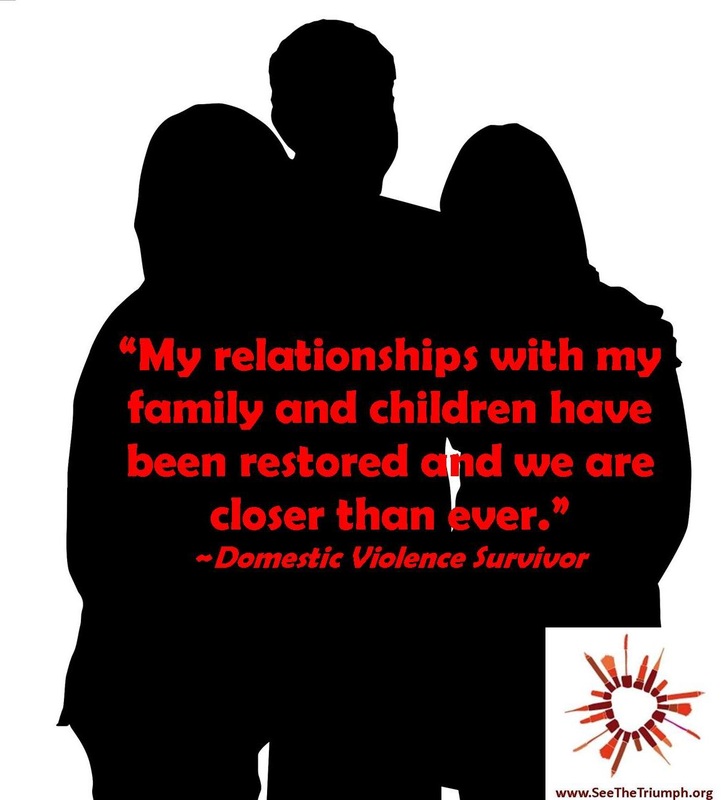
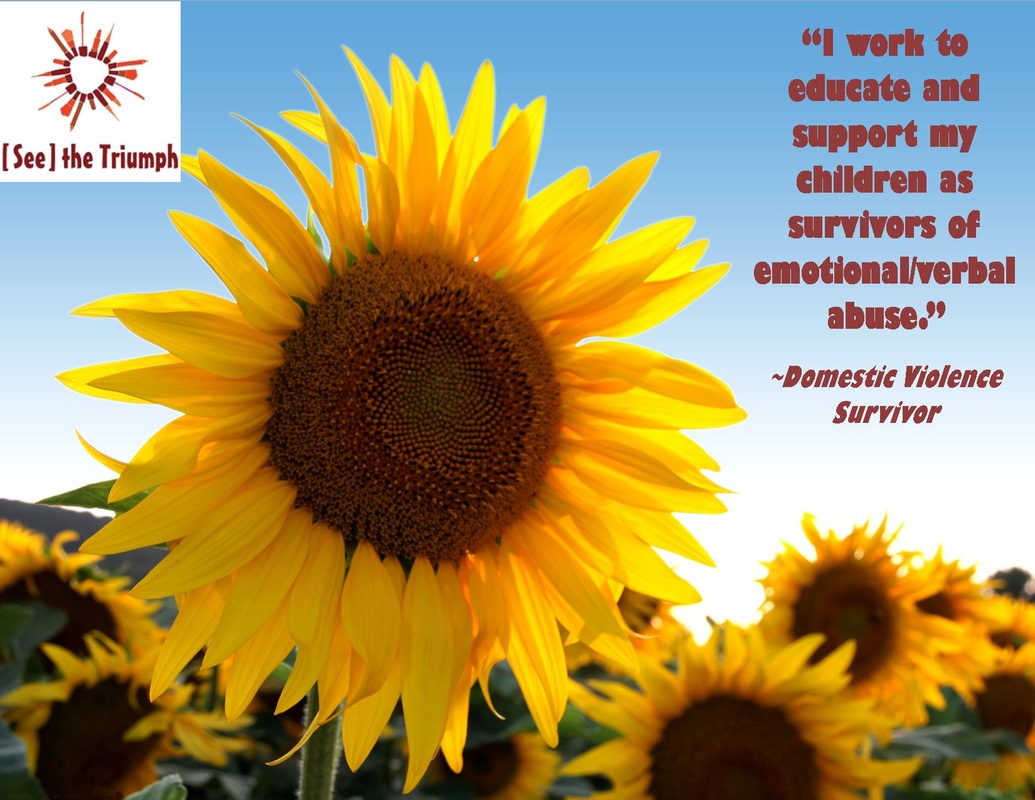
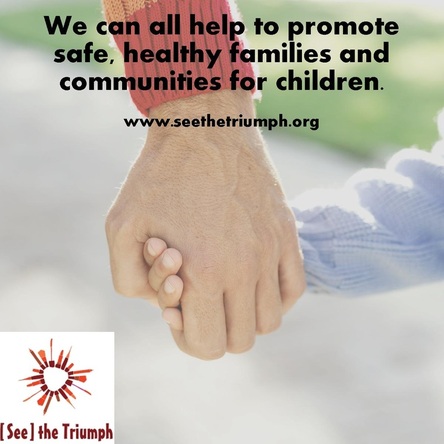
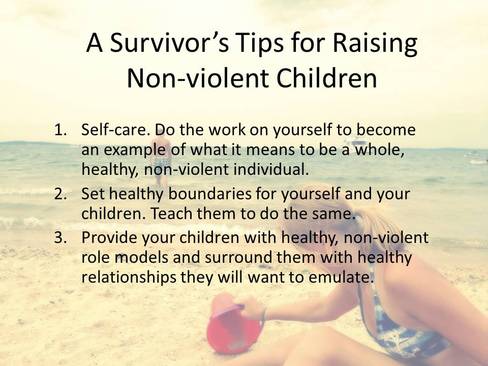
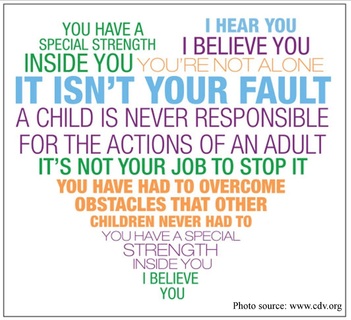

 RSS Feed
RSS Feed